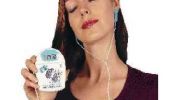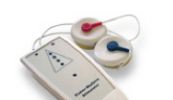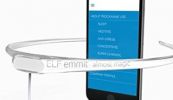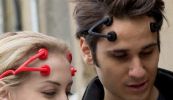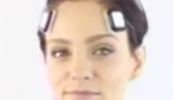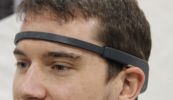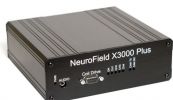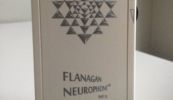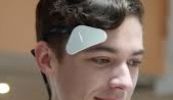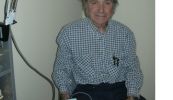OASIS CES Cranial Electro Stimulatie
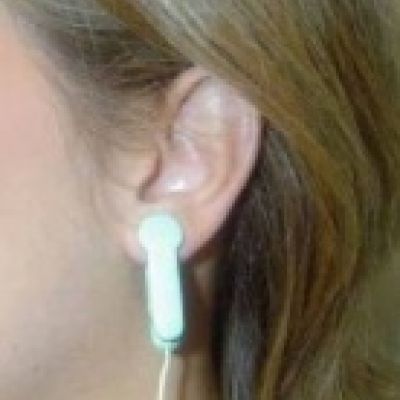
- ‹ vorige
- 690 van de 1068
- volgende ›
http://www.elixa.com/CES/CESfaq.htm ![]() schreef:
schreef:
Q. What research is there as to the safety and effectiveness of CES?
A. There are approximately 1,000 articles on CES therapy many of which are listed in four reviews put out by the Foreign Service Bulletin of the United States Library of Congress. This is in addition to the wealth of physiological and bio-engineering data on electrosleep and electroanesthesia in animals. As of this writing there are more than 100 research studies on CES in humans and 18 experimental animal studies. The efficacy of CES has been clinically confirmed through the use of 28 different psychometric tests. The significance of CES research for treating anxiety has also been reconfirmed through meta-analyses conducted at the University of Tulsa and at the Department of Health Policy and Management , Harvard University School of Public Health. The full body of research can be accessed at this website.
Dat klinkt wel heel erg positief voor een paar oorklemmetjes waardoor minder stroom zal gaan dan bij echt IN de hersenen geplaatste electroden.
En dan moeten die elektroden ook nog heel erg precies worden geplaatst.
http://www.onemedplace.com/blog/archives/567 ![]() schreef:
schreef:
There are several proposed mechanisms of action through which CES is believed to operate—the effects are possibly mediated through a direct action in several brain areas including the limbic system, the hypothalamus or the reticular activating system. Fisher-Wallace has received an FDA 510(K) clearance for the device. It is available in the U.S. by prescription only. CES devices are sold over the counter in Europe and other parts of the world.
Tegen apathie ? Zie voor wat terughoudendheid:
http://www.quackwatch.org/01QuackeryRelatedTopics/ces.html ![]()
http://en.wikipedia.org/wiki/Cranial_electrotherapy_stimulation ![]()
Betreffende FDA-clearances maken allemaal gebruik van de 1976-overgangsregeling, de z.g. grootvaderverklaring, die inhoudt dat er niet hoeft te worden getest op effectiviteit. De fabrikanten zien kennelijk geen reden deze situatie te veranderen, maar leggen de tekst zo uit dat het lijkt of hun apparaat wel degelijk goed is:
https://alleviahealth.com/provider/regulatory/ ![]() schreef:
schreef:
According to the FDA, cranial electrotherapy stimulator (Regulation No.882.5800) is a grandfathered class III neurological device “…that applies current to a patient’s head to treat insomnia, depression, or anxiety.” Both the Alpha-Stim 100 and the Alpha-Stim SCS have been classified as cranial electrotherapy stimulators. The Alpha-Stim FDA's 510 (k) Premarket Notification Number for these applications is K903014.
.
Grandfathered class III devices are not considered investigational by the FDA and therefore an Investigational Device Exemption (IDE) is not required for clinical use or research trails with any Alpha-Stim products or CES devices in general.
De werkelijkheid is veel en veel terughoudender:
http://www.psychiatrictimes.com/neuropsychiatry/fda-panel-votes-curtail-cranial-electrotherapy-stimulators ![]()
en http://www.aetna.com/cpb/medical/data/400_499/0469.html ![]() schreef in 2007 en nu in 12/2012 en 9/2014 en 10/2015 nog onveranderd:
schreef in 2007 en nu in 12/2012 en 9/2014 en 10/2015 nog onveranderd:
Aetna considers cranial electrical stimulation (also known as electrosleep, electrotherapeutic sleep, cerebral electrotherapy, transcranial electrotherapy, transcerebral electrotherapy, craniofacial electrostimulation, and electric cerebral stimulation as well as the Liss Body Stimulator that is used to treat alcoholism) experimental and investigational for the treatment of neuropsychological indications or any other indications because its effectiveness has not been established.(not an all inclusive list):
Alcoholism
Alzheimer's disease
Autism
Chemical dependency
Chronic pain
Dementia
Depression
Headaches
Mood and sleep disturbances
Parkinson disease
Visual rehabilitation.
en FDA-rapport 2012
http://www.fda.gov/downloads/AdvisoryCommittees/CommitteesMeetingMaterials/MedicalDevices/MedicalDevicesAdvisoryCommittee/NeurologicalDevicesPanel/UCM290787.pdf ![]()
In the absence of a reasonable assurance of effectiveness, a key concern stemming from our review of the literature is that use of CES in lieu of more effective, proven therapies may present undue risk to patients whose psychiatric conditions may worsen if untreated.


